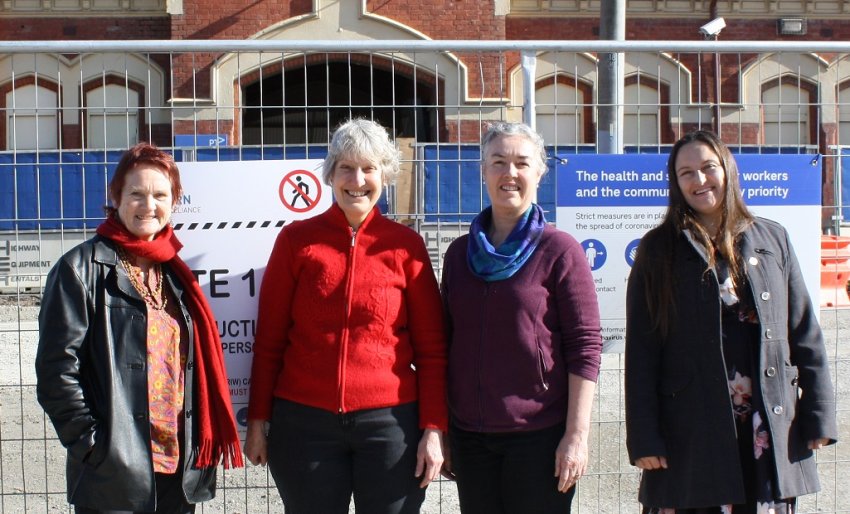
Victorian Premier Dan Andrews is calling on people not to go to work if they are feeling unwell. But, for a casual worker without access to sick leave and no savings, that is easier said than done.
Moreland Socialist Alliance councillor Sue Bolton told Green Left on August 4 that it is now widely accepted that the casualisation of workforces is largely responsible for the COVID-19 outbreaks.
Security guards in quarantine hotels, workers in aged-care facilities, meatworks and warehouses are overwhelmingly casual and have to work in close proximity to each other for long periods of time.
The Victorian government has introduced a one-off payment of $1500 for workers without leave who have to quarantine. It has also introduced a $300 payment for those isolating while waiting for the test results.
“These payments are very helpful, but they don’t resolve why someone might be forced to go to work when unwell,” Bolton said.
“For many people doing casual work, missing shifts can mean they lose those shifts in the long-term, or lose their jobs.
“The business model which outsources workforces, makes people work when they shouldn’t be. It led to the fiasco of poorly-trained casual workers being left in charge of the hotel quarantine arrangements.”
Bolton said that state and federal governments need to ensure that casual workers who have to stay home are not disadvantaged or discriminated against during the pandemic.
“The federal government has the power to make it illegal for employers to sack workers or not offer them shifts if they undergo quarantine or self-isolation.
“If governments protected casual workers’ jobs, people would not go to work if they were not feeling well.”
Bolton is a two-term councillor in the North-East Ward of Moreland where St Basil’s Home for the Aged is located.
About 70% of aged care workers are qualified with a Certificate III, which can be completed with as little as six weeks’ training. For new arrivals, one of the easiest ways to get a job is in the aged care industry. This continuing stream of casual workers suits the privatised aged care industry.
Dr Sarah Russell, a public health researcher and director of Aged Care Matters, took aim at the “aged care behemoths” for refusing to provide critical paid pandemic leave to an overwhelmingly casualised workforce, claiming it was the government’s responsibility.
As she put it on Michael West Media on July 24: “Soon after the pandemic hit, Leading Aged Services Australia recognised the need to hire more staff in private aged care homes. It began promoting 'The national COVID-19 redeployment program' which aims to train a large numbers of unemployed people to work in aged care homes.
“And the training required? A 10-hour online course. Considering the complexities of working in an aged-care home during a pandemic, it is inconceivable that someone with 10 hours of training is qualified to provide competent care. You simply can’t learn how to use PPE safely in an online video.”
Apart from the casualised workforce, the COVID-19 outbreaks in the aged care sector stem from the lack of mandated nursing and non-nursing ratios, and a privatised training system which, in some cases, provide substandard training.
“The federal government wants to use the pandemic to ram through industrial relations ‘reforms’ to make it easier for employers to cut workers’ wages and conditions,” Pauline Galvin, a former public health worker who is running on the Sue Bolton Moreland Team ticket for the Moreland City Council elections.
“It should instead be forcing employers to guarantee to casual workers who have been diagnosed with COVID-19 that they will be able to return to the same shift arrangement they had before becoming sick,” said Galvin.
[To get in touch with the Sue Bolton Moreland Team visit the website here.]